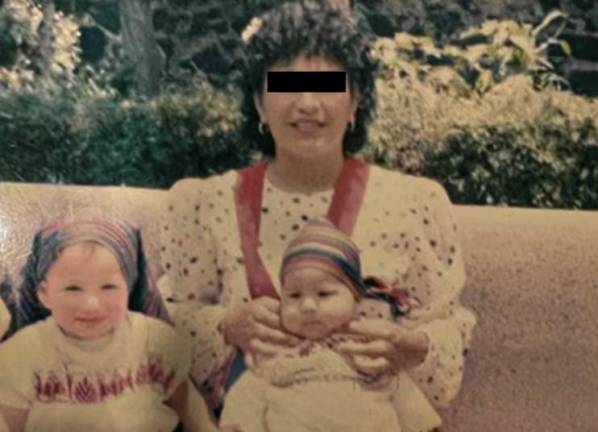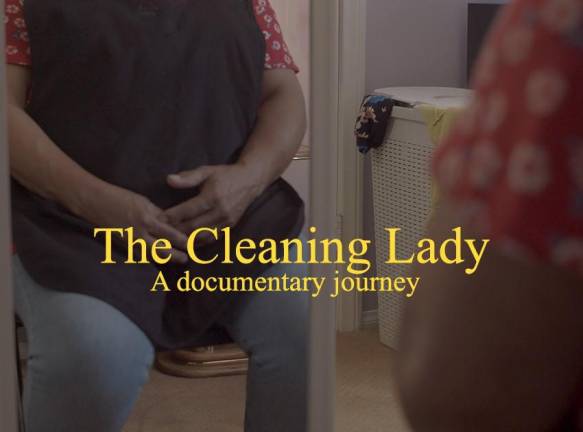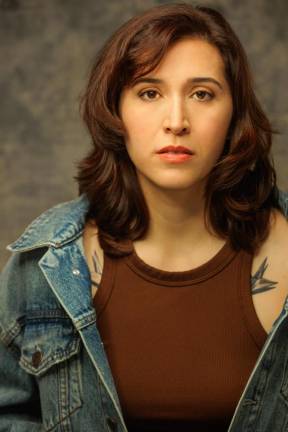’The Cleaning Lady’ Seeks to Humanize the Migrant Story
A short documentary tells the story of a mother who crossed the border into the US without her children, and after 15 years here decided to “self deport” back to Mexico.




“I would have never left [my children] if I had known that I couldn’t [eventually] bring them with me.” So says Marisol Reina (a pseudonym), the subject of The Cleaning Lady, a documentary by producer Carlos Ibarra and director Ericka de Alexander, which premiered recently at DocNYC.
Four years in the making, the short film tells the story of a mother of three who crossed the border to provide a better life for her family but after 15 years, and while filming was underway, decided to “self deport” and return home in the hope of reconnecting with them. The director, de Alexander, went to Ibarra for advice and for funding to produce the film.
The $10,000-plus needed to produce the film was independently raised by the director and producers through family and friends with Film Independent serving as a sponsor.
Ibarra, an award-winning director, writer and actor himself, is the founder of Future Self Media, a full-service production company focused on high-impact storytelling and fostering independent talent. He also serves as Artist Development Co-Lead for the Undocumented Filmmakers Collective. Previously, he was Head of Development at 141 Entertainment. The NYU graduate was born in Mexico and raised in California. His creative thinking helped give de Alexander ideas on what to shoot, and how to make it an engaging story
De Alexander is also a Mexican immigrant, actor and University of Southern California film graduate.
Of her directorial debut, de Alexander says, “Ultimately, this documentary explores ‘What is it that makes this all worth it.’ ”
The documentary’s goal, she said, is to give voice to the undocumented and humanize them by focusing on one migrant’s personal story.
In the words of Marisol after she returned to Mexico: “What I recommend is that you never stop loving your family, even if you’re far away. Don’t stop calling . . . then a small piece of you stays with them.”
After viewing The Cleaning Lady, Straus Media sat down with the producer, Ibarra, who shared his thoughts on the documentary, diversity and the inaccurate image of immigrants in the US today.
How did you become interested in filmmaking?
As a kid, I gravitated toward stories. I loved reading. My family was a big movie family. I became interested in telling stories.
How did The Cleaning Lady come across your desk?
Ericka [de Alexander] shared with me her work-in-progress and then asked me and my business partner to come on board and help guide her.
What made you say yes?
I’m an immigrant. Ericka is also, so that was the appeal: immigrants telling the stories of immigrants. There’s already that built-in sensitivity to the nature of the subject. It allowed Marisol to be more open and vulnerable and trust that we have the best interest for her story.
Also, we don’t get to see a lot of the immigrant community making projects, which is why I felt it was important, especially as the subject changed when Marisol decided to go back to Mexico. The perspective for immigrants is that the Holy Grail is the American Dream, not realizing that there is also an opportunity for that dream to be made back in the home country. Self-deportation isn’t talked about a lot, nor the mental health and depression that a lot of immigrants experience.
So Marisol’s return to Mexico wasn’t part of the film’s storyline from the beginning?
When Ericka approached her about this documentary, Marisol had no intention of returning to Mexico.
When Ericka showed her a rough cut of the footage, it created an impact and transformed the direction of Marisol’s life. She realized the pain that she had been living with but never vocalized. She realized how much she missed her family and decided to go back. We were very happy to continue supporting that journey as it unfolded.
Let’s talk about how the undocumented are portrayed in the news. When someone in that community commits a crime, their status becomes the focus. Because of that, all immigrants are tarred with the same brush, which works against the message of your film. The news has a 24/7 cycle and you have an 11-minute movie. How do you compete?
By doing what we’re doing, which is trying to raise awareness for the project. The news is riddled with horrible images of the “bad immigrants” without a lot of opportunities to see the other side: people who are contributing.
The key is to try to get into as many [film] festivals as we can to show this other image. We’re looking to end up on a broadcast platform like PBS and add an educational element to it.
What are your goals as a filmmaker?
I’d like to raise awareness in Hollywood, where there is no room for minorities. On a yearly basis, UCLA releases its stats on how many people of diverse backgrounds are working in Hollywood or mainstream media. Latinos make up less than 5 percent. That, to me, is one of the biggest goals: to highlight that there is incredible immigrant talent, especially from Mexico and Latin America, that needs to be given an opportunity. Then, we’ll see other perspectives, which means different types of TV shows and movies that will hopefully bring in a whole different audience that will feel included.
Lorraine Duffy Merkl is the author of three novels, most recently The Last Single Woman in New York City.
“Self-deportation isn’t talked about a lot, nor the mental health and depression that a lot of immigrants experience.” Carlos Ibarra, producer, The Cleaning Lady.